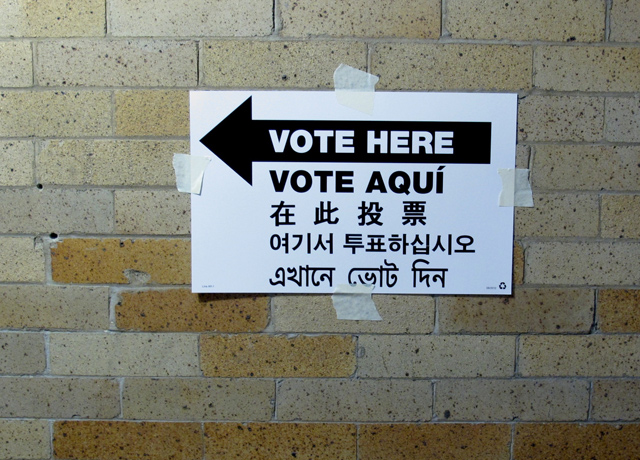The Extraordinary Benefits of Multilingualism

(Zainab Akanda/Flickr)
The benefits of learning another language are well-researched and well-documented — but there’s a case that neither educators or language learners are aware of just how beneficial it is. Advocates of bilingualism tend to focus on utilitarian outcomes like strengthening national security, ensuring economic prosperity, getting a better job in the future, or even developing one’s ability to navigate the streets of a foreign capital. But even if you never leave the United States or need anything more than English to live your life and do your job, your education is not complete without the deep experience of learning another language.
Over a series of recent conversations with my fourth and fifth grade students in both the French and Chinese bilingual programs at International School of the Peninsula, we explored the relationship between language and culture. One of the students' main insights was that the process of becoming bilingual has helped them realize that nothing can be directly translated, and that all communication — even within a single language — involves interpretation and nuance. That’s a profound insight, even for professional academics, let alone nine and 10-year-olds. But it shows that our students are already moving beyond the idea that learning a language is all about being able to have a smooth visit to Paris or Beijing.
Becoming bilingual — or multilingual — should be about more than just acquiring vocabulary and grammar. It should also be one lever toward helping students become globally competent adults who have the creativity, adaptability, and flexibility of mind to be successful in any environment. To do so, schools need to teach students to recognize patterns in language and culture, to think like linguists and diplomats, and to acquire language in settings that are authentic and that provoke student inquiry and discovery.
I had the privilege of being part of a national movement to achieve just this goal — a movement that inspired and grew into what is now Asia Society’s International Studies Schools Network (ISSN). Within this vibrant and diverse group of schools nationwide, students are learning to think beyond linguistic proficiency. For them, language learning is a key driver for the development of an even more complex and empowering set of global competencies.
Four ISSN students from the Denver Center for International Studies (DCIS) and DCIS at Montbello were recently asked to reflect on their language learning experiences and how they had shaped their lives and visions of the world. J’Lee and Oscar from DCIS and Christian and Nayelie from DCIS Montbello talked about the profound impact that learning Chinese, Spanish, and French has had on them.
Oscar spoke eloquently about how learning another language allows a person to “sound funny in your own voice” and to “learn to express yourself in a different way than in your native language.” “Sounding funny in one’s voice” is a fantastic image of the ways in which learning another language can help students see themselves and the world though a completely different lens and to take on characteristics that are incredibly different from their everyday personas.
Following up on this experience of acting, feeling, or even thinking differently in another language, Christian noted, “when I start to use Chinese, my English starts to blur and I forget how to say some words in English.” J’Lee discussed the importance of knowing the context in which a language is spoken: “History always come into the language … you have to get into their minds.” And Nayelie observed that learning Chinese has “helped me expand my knowledge and see how other people communicate and how they think differently. It’s changed my curiosity a lot … and … makes me want to spend time with other people and interact with them.”
These students are seeing the value of a world language beyond just the obvious — and the cognitive, academic, and professional skills they are acquiring through learning another language extend to areas as diverse as thinking flexibly, being adaptable, seeing issues from different perspectives, and solving problems with a variety of approaches and solutions.
Chris Livaccari further explores this topic in his Asia Society publication, New Ways of Seeing: How Multilingualism Opens Our Eyes and Trains Our Minds for a Complex World, which will be released in summer 2016.
If you’d like to learn more about how you can make sure you are helping students achieve these goals at your own school, stop by Chris’ session at the 2016 National Chinese Language Conference with Kate Farmer, Associate Director of School Partnerships for the Asia Society International Studies Schools Network (ISSN). Their session is called “Chinese Language Learning in Action for a Global World,” and they will offer some thoughts on how to ensure that your Chinese language students are developing the skills to become globally competent and hear about the work of the ISSN, an ongoing national initiative that has nurtured globally competent learners in K-12 schools for more than a decade.

